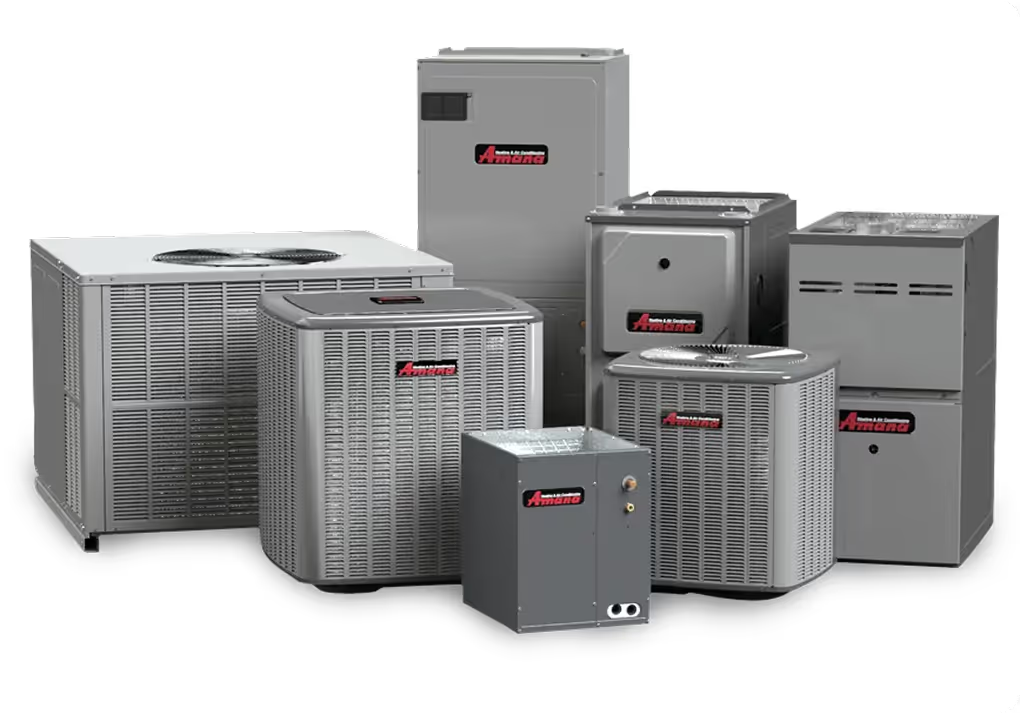In Chapel Hill, NC, indoor air quality (IAQ) is vital for health and comfort. Homes can harbor unseen pollutants like allergens, mold, and VOCs, impacting well-being. This guide details essential IAQ services for Chapel Hill residents, focusing on comprehensive assessments and targeted solutions to create healthier living spaces. Understanding IAQ involves recognizing contaminants from the local climate and housing types. Professional IAQ services, including meticulous testing for particles, VOCs, mold, and dangerous gases like carbon monoxide and radon, pinpoint the exact issues. Identifying pollutant sources, such as moisture, HVAC systems, building materials, and household products, is crucial for lasting improvement. Advanced filtration systems, like HEPA filters, and humidity control solutions, including whole-home dehumidifiers, effectively manage airborne particles and moisture. Furthermore, professional duct cleaning and sealing prevent the circulation of dust and contaminants and stop unfiltered air from entering. Ongoing IAQ improvement plans offer maintenance advice and source control strategies, ensuring a continuously healthy home environment for Chapel Hill families.
.jpeg)
Elevating Indoor Air Quality in Chapel Hill, NC: A Comprehensive Guide to Cleaner, Healthier Home Environments
In the vibrant community of Chapel Hill, NC, the quality of the air inside our homes is as crucial to our well-being as the fresh Carolina air outdoors. However, the air within our living spaces can often be far more polluted than we realize, teeming with unseen contaminants that can impact health, comfort, and peace of mind. From seasonal allergens prevalent in the Triangle area to hidden mold, volatile organic compounds (VOCs), and persistent dust, a multitude of factors can compromise indoor air quality (IAQ). Understanding and addressing these issues through professional IAQ services is not just a matter of comfort; it's an investment in the health of your family and the longevity of your home.
This guide explores the essential components of indoor air quality services tailored for Chapel Hill residents, detailing how comprehensive assessments and targeted interventions can transform your living environment.
The Unseen Threat: Understanding Indoor Air Quality in Chapel Hill
Indoor air quality refers to the air conditions within and around buildings and structures, especially as they relate to the health and comfort of building occupants. In a place like Chapel Hill, with its distinct climate, natural surroundings, and diverse housing stock, unique challenges can arise. High humidity levels, common throughout much of the year, can foster mold and mildew growth. The abundance of trees and foliage contributes to seasonal pollen and outdoor allergens that easily infiltrate homes. Additionally, older homes may have outdated ventilation systems or materials that release pollutants, while newer, tightly sealed homes can trap contaminants inside without proper air exchange.
Poor IAQ is often insidious because its effects can be subtle initially, manifesting as general discomfort, unexplained fatigue, or persistent allergy-like symptoms. Over time, exposure to certain pollutants can lead to more serious respiratory issues, aggravate existing health conditions, and even contribute to long-term health problems. Recognizing the signs of compromised IAQ – such as stale odors, excessive dust, visible mold, or recurring health complaints among occupants – is the first step toward creating a healthier home.
Comprehensive IAQ Testing and Monitoring for Precision Solutions
The foundation of any effective indoor air quality improvement plan is a thorough assessment. IAQ testing and monitoring services provide a precise, data-driven understanding of what exactly is in your home's air. For Chapel Hill residents, this typically involves a multi-faceted approach:
- Particle Counts and Allergen Screening: Identifying concentrations of dust, pollen, pet dander, and other airborne particulates that can trigger allergies and asthma. This is particularly relevant given Chapel Hill's lush environment.
- Volatile Organic Compound (VOC) Detection: Measuring levels of harmful chemicals emitted from common household products, building materials, furnishings, and cleaning agents. Many VOCs have short- and long-term adverse health effects.
- Mold Spore Analysis: Detecting the presence and types of mold spores in the air, even if visible mold is not present. High humidity in Chapel Hill homes makes mold a frequent concern.
- Carbon Monoxide and Radon Testing: Essential for safety, these tests detect colorless, odorless gases that can be extremely dangerous.
- Temperature and Humidity Assessments: Evaluating these environmental factors that directly influence comfort, mold growth, and the survival of various indoor pollutants.
Professional IAQ monitoring can also track these parameters over time, providing a clearer picture of air quality fluctuations and the effectiveness of any implemented solutions. This diagnostic phase eliminates guesswork, ensuring that subsequent interventions are precisely targeted to the specific issues identified in your Chapel Hill home.
Pinpointing Pollutant Sources: The Key to Lasting Improvement
Once pollutants are identified through testing, the next critical step is to locate their origins. Without addressing the source, even the most advanced filtration systems may only offer temporary relief. Pollutant source identification services meticulously investigate your home's environment to uncover where contaminants are entering or being generated.
Common sources include:
- Moisture Intrusion: Leaks in roofs, plumbing, or foundations; high indoor humidity leading to condensation and mold growth, a common issue in humid Chapel Hill climates.
- HVAC Systems: Dirty ductwork, contaminated coils, or improperly maintained filters can circulate allergens, dust, and mold spores throughout the home.
- Building Materials: Off-gassing from new carpets, paints, flooring, or furniture (VOCs).
- Household Products: Cleaning supplies, air fresheners, personal care products, and pesticides.
- Pest Infestations: Rodent droppings, insect fragments, and their associated allergens.
- Combustion Appliances: Gas stoves, fireplaces, and water heaters that can emit carbon monoxide and nitrogen dioxide if not properly vented.
- Outdoor Contaminants: Pollen, exhaust fumes, and industrial emissions entering through open windows or cracks.
By accurately identifying these sources, a targeted strategy can be developed to eliminate or significantly reduce the introduction of these harmful elements into your indoor air.
Advanced Filtration and Humidity Control Options
Controlling airborne particles and managing moisture are two pillars of effective IAQ improvement. Modern solutions go beyond basic furnace filters, offering sophisticated options tailored to the unique needs of Chapel Hill homes.
- High-Efficiency Filtration Systems: Upgrading to filters with higher MERV (Minimum Efficiency Reporting Value) ratings, or installing whole-home HEPA (High-Efficiency Particulate Air) filters, can capture a significantly greater percentage of airborne particles, including pollen, pet dander, dust mites, mold spores, and even some bacteria and viruses. These systems integrate seamlessly with your existing HVAC to clean all the air circulating through your home.
- Air Purifiers: Standalone or integrated air purifiers utilize various technologies—such as activated carbon filters, UV-C light, or photocatalytic oxidation (PCO)—to neutralize odors, VOCs, and microbial contaminants.
- Humidity Control Systems: Given Chapel Hill's climate, managing indoor humidity is paramount. Whole-home dehumidifiers can effectively maintain optimal indoor humidity levels (typically between 30-50%), preventing mold growth, inhibiting dust mite proliferation, and enhancing overall comfort. In drier months, humidifiers can prevent issues like dry skin, respiratory irritation, and static electricity. These systems integrate with your HVAC and provide consistent, balanced moisture control throughout the entire living space.
The selection of appropriate filtration and humidity control systems is based on the specific pollutants identified during testing and the architectural characteristics of your Chapel Hill residence.
Duct Cleaning and Sealing: The Invisible Pathways of Your Home's Air
Your home's ductwork acts as the circulatory system for your indoor air. Over time, these pathways can accumulate significant amounts of dust, dirt, allergens, pet dander, and even mold. When your HVAC system operates, it circulates these contaminants throughout your living spaces.
- Professional Duct Cleaning: Thorough duct cleaning services utilize specialized equipment to dislodge and remove accumulated debris from the entire duct system, including supply and return air ducts, grilles, and registers. This process can significantly reduce the recirculation of airborne pollutants, improve HVAC efficiency, and alleviate odors. For Chapel Hill residents dealing with seasonal allergies or dust sensitivity, clean ducts can make a noticeable difference in indoor air quality.
- Duct Sealing: Beyond cleaning, many duct systems suffer from leaks, cracks, and poorly connected sections. These breaches allow conditioned air to escape into unconditioned spaces (like attics or crawl spaces) and, more importantly, can draw in unfiltered, potentially contaminated air from those same areas. Professional duct sealing uses specialized mastics and sealants to close these gaps, preventing pollutant infiltration and ensuring that your conditioned air remains clean and within the system. This not only improves IAQ but also enhances HVAC efficiency, leading to potential energy savings.
Guidance on Ongoing IAQ Improvement Plans
Improving indoor air quality is often an ongoing process, not just a one-time fix. After initial assessments and interventions, comprehensive IAQ services include providing Chapel Hill residents with guidance for maintaining optimal air quality long-term. This can involve:
- Routine Maintenance Schedules: Recommendations for filter replacement, HVAC system check-ups, and professional duct inspections.
- Source Control Strategies: Advice on selecting low-VOC products, proper ventilation during cleaning or painting, and managing moisture sources.
- Behavioral Adjustments: Tips for reducing pet dander, controlling dust, and ensuring adequate ventilation.
- Monitoring Recommendations: Suggesting smart home devices or professional re-testing intervals to ensure continued good IAQ.
This guidance empowers homeowners to proactively manage their indoor environment, ensuring that their Chapel Hill home remains a sanctuary of clean, healthy air for years to come.
A Healthier Home Environment for Chapel Hill Residents
The importance of healthy indoor air cannot be overstated. For residents of Chapel Hill, NC, addressing indoor air quality concerns through professional services means more than just breathing easier; it means creating a safer, more comfortable, and healthier home. By utilizing comprehensive IAQ testing, expert pollutant source identification, advanced filtration and humidity control, thorough duct cleaning and sealing, and personalized improvement plans, you can take decisive steps towards an elevated living experience. Investing in your home's indoor air quality is an investment in the health and well-being of everyone who dwells within its walls.

Featured Manufacturer
Amana is known for delivering high-quality heating and cooling solutions backed by industry-leading warranties. With a focus on energy efficiency, durability, and American craftsmanship, Amana products are designed to keep your home comfortable year-round.









.png)
.png)
.png)
.png)
.png)
.png)
.png)
.png)
.png)
